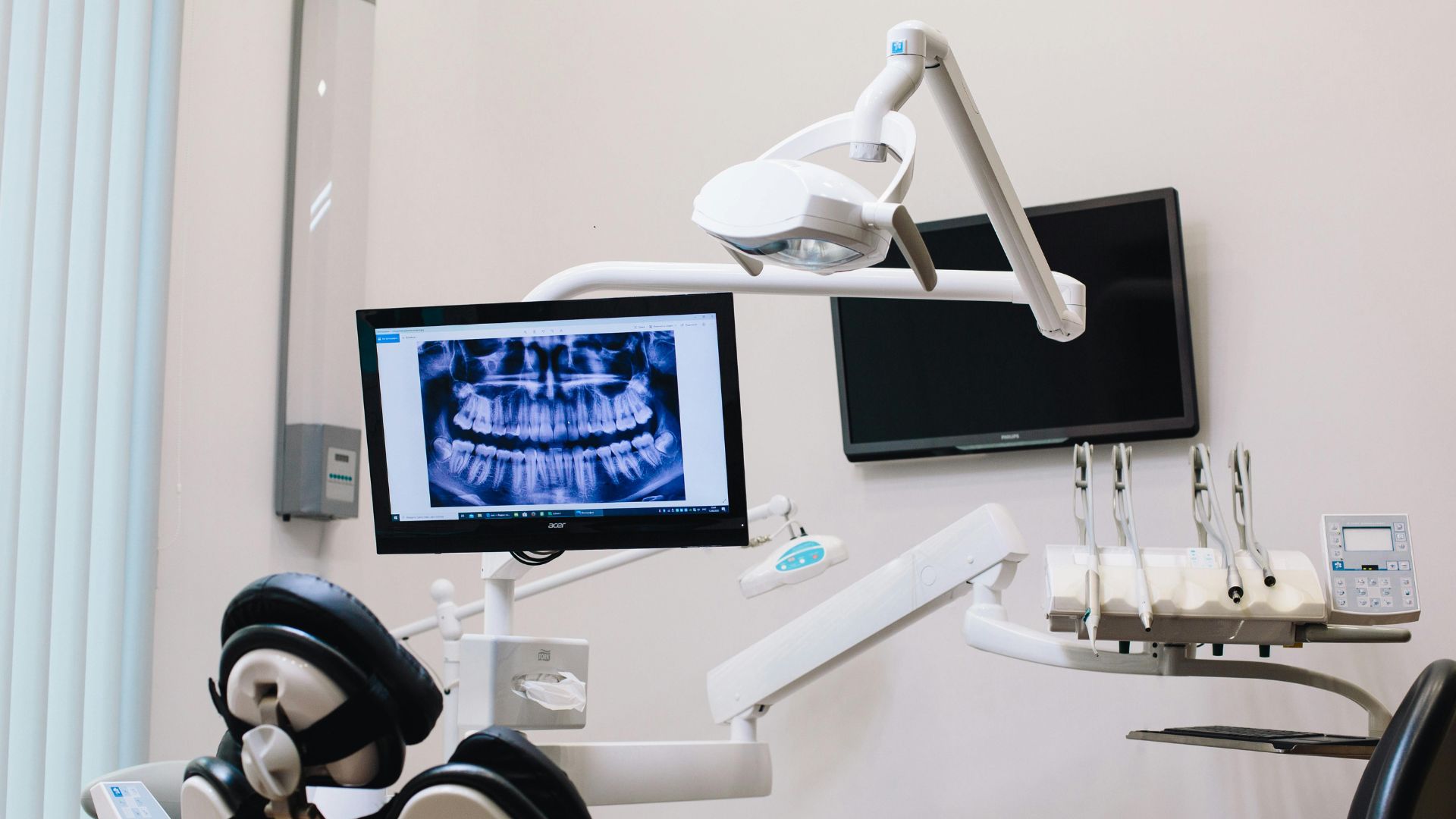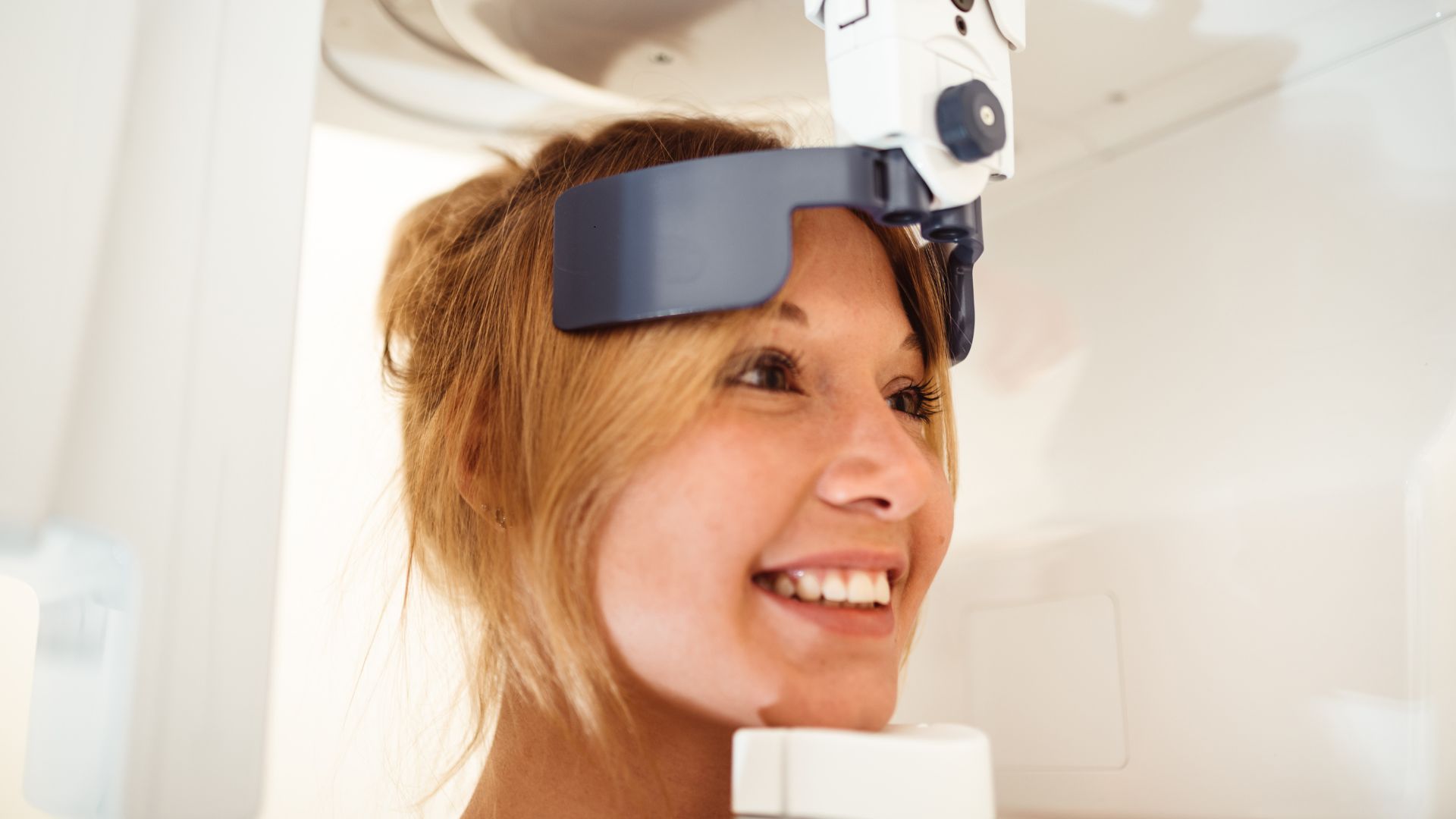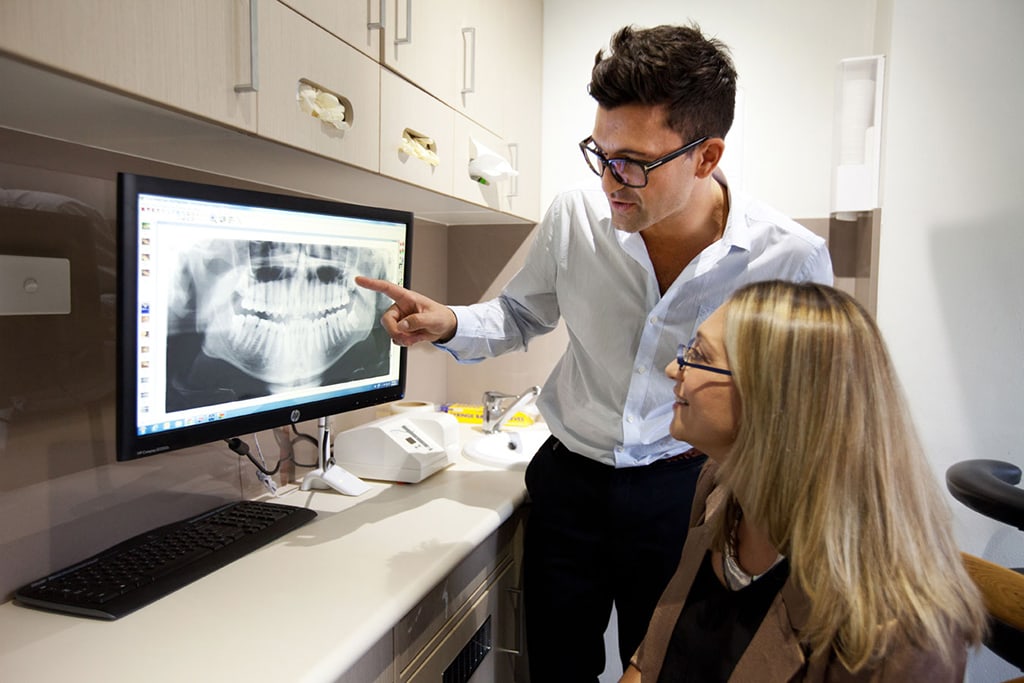Why Dental X-Rays Are an Essential Part of Your Check-Up
You might associate X-rays with broken bones or sports injuries, but they’re actually just as important in dentistry. Routine X-rays help your dentist spot potential issues such as hidden cavities, gum disease and developing problems in children, before they have a chance to progress into something more serious.
Dental X-rays provide your dentist with a valuable glimpse at what’s going on beneath the surface of your teeth. And the good news is that they’re quick, safe, and nothing to be worried about. Here’s what to expect during a dental X-ray and why skipping them should be avoided.
What Are Dental X-Rays?
Dental X-rays provide internal images of your teeth, jawbones and surrounding soft tissue. They’re used to identify issues in parts of the mouth that aren’t visible during a standard examination, such as early signs of tooth decay, infections or impacted teeth.
They use small, safe amounts of radiation to capture highly detailed images that can be taken either digitally or on film, depending on the technology used by your dentist.
There are several different types of dental X-rays, each one with a different purpose:
- Bitewing X-rays capture images of the upper and lower teeth to help dentists detect cavities or decay between teeth.
- Panoramic X-rays capture a wider view of the entire mouth. This type of X-ray is often used when planning treatment such as braces, extractions and partial dentures.
- Periapical X-rays offer a more detailed, close-up view of a single tooth. They’re most commonly used to detect gum disease, root issues and other abnormalities such as abscesses.
Each type offers your dentist valuable information about your oral health, essential for finding and treating issues early.
Why Are X-Rays Taken During a Check-Up?
Dental X-rays are taken during a check-up for many important reasons. One of the key purposes is to identify potential oral issues early, before they become painful or difficult to treat.
For example, X-rays can reveal hidden tooth decay beneath the tooth surface, such as under fillings or between teeth.
Catching decay early often means treatment is less invasive. They can also help identify issues like abscesses, cysts, or even tumours that may not otherwise be visible to the naked eye or may not show symptoms until they’ve progressed.
X-rays can also be used as a monitoring tool, especially in children and teens. They can clearly show the development of teeth and jawbones and monitor the eruption of adult teeth.
Dental X-rays are widely regarded as an extremely valuable tool for dentists to make more accurate observations and tailor treatment plans accordingly.
How Often Should You Get Dental X-Rays?
Patients often wonder how often they should have a dental X-ray, but there’s no one-size-fits-all approach. Factors such as your age, dental history and potential risk will all influence the frequency of your X-rays.
For example, someone with a history of frequent cavities may need bitewing X-rays every 6-12 months, while a patient with no recent concerns may only need them every two years. Children often require more frequent checks to closely monitor their development.
Are Dental X-Rays Safe?
 Dental X-rays are considered safe because the radiation exposure is low. Thanks to technological advancements, these levels are now even lower than before. Digital X-rays allow your dentist to capture images even more quickly, reducing exposure time.
Dental X-rays are considered safe because the radiation exposure is low. Thanks to technological advancements, these levels are now even lower than before. Digital X-rays allow your dentist to capture images even more quickly, reducing exposure time.
To put things into perspective, the amount of radiation you’re exposed to is about the same as during a short flight. Protective measures are also used to further minimise exposure.
It’s important to remember that the potential benefits of dental X-rays completely outweigh any risks. The long-term impact of untreated tooth decay is much more dangerous than low-level radiation exposure.
If you’re nervous about the procedure, don’t be afraid to mention this to your dentist. Your dentist will be happy to talk you through the X-ray process and discuss any concerns you may have.
What Happens If You Skip X-Rays?
Skipping X-rays may seem harmless, but it can actually lead to serious problems down the line, such as cavities between the teeth or infections. Many dental issues arise without obvious symptoms, which is why keeping up with regular X-rays is a crucial part of dental care.
Dental X-Rays for Children and Teens
Dental X-rays are especially important for children and teens, as they help dentists monitor growth, spot potential issues early, and promote long-term oral health. X-rays can reveal problems like crowding, impacted teeth, or decay between teeth that may not be visible during a standard check-up.
FAQs About Dental X-Rays
Why are dental X-rays necessary?
Dental X-rays allow dentists to identify problems such as tooth decay, gum disease, and bone loss early, ensuring treatment is as effective as possible.
Do I need X-rays every time I go to the dentist?
No, you don’t need an X-ray during every dental appointment. The frequency of X-rays will vary patient to patient and is influenced by age and dental history.
What is the importance of a dental check-up?
Regular dental check-ups allow dentists to monitor your teeth’s health and detect issues such as cavities, gum disease, infections, bone problems, or oral cancer. During appointments, dentists can also remove plaque buildup and offer advice on brushing and flossing to help keep your teeth healthy.
Do dental X-rays hurt?
The dental X-ray procedure is harmless, and you shouldn’t feel any pain throughout. Some patients may experience slight discomfort from the bitewing’s position in the mouth.
How long do dental X-rays take?
Dental X-rays are quick and usually only take a few minutes, depending on the type of X-ray and the number of images required. A simple bitewing may take only five minutes, while a panoramic one could take longer.
Partnering with Your Dentist for Preventive Care
Dental X-rays are nothing to be afraid of, and often just happen as part of your standard dental appointment. They’re crucial for identifying and diagnosing issues early and making treatment as affordable, non-invasive and effective as possible.
Here at KB Village Dental, we care about your smile. We offer a range of services, including dental X-rays to help keep your teeth and mouth healthy. Contact us today to learn how we can help you look and feel your best.


